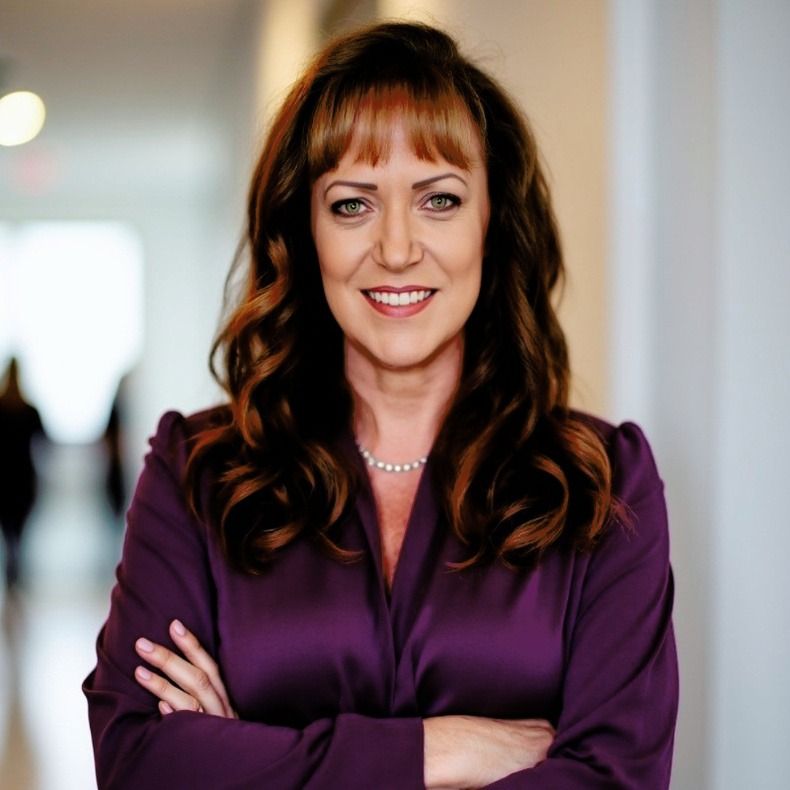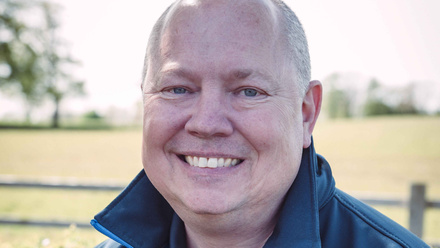Building space for others to flourish: Sharon McCormick on the true art of leadership

Sharon McCormick (pictured) is the founder of The Listening Centre – an Employee Assistance Provider and winner of the Greater Birmingham Chambers of Commerce Business of the Year 2025.
A former Royal Air Force service member with eight years of experience, Sharon reflects during Armed Forces Week on what true leadership means, the challenges of transitioning to civilian life, and why SMEs are the perfect fit for veterans – offering purpose-driven environments where individual contributions truly count.
Can you share a brief overview of your time in the Armed Forces — where you served and in what role?
I served in the Royal Air Force for eight years from the age of 17.
I was posted to two different units during my service: RAF Boulmer in Northumberland for my first three years, then RAF Bentley Priory for my last five years. During this time, I also did a four month tour in the Falklands.
As an aerospace systems operator in the RAF, I was responsible for operating the radar and electronic systems that kept aircraft safe in the skies - think of it like being an air traffic controller combined with a technical specialist.
The role taught me to stay calm in high-stakes situations, work as part of a tight-knit team, and understand that behind every technical system are real people who need support.
What led you to transition into your current role — whether in business, politics, or civic life?
After leaving the RAF, I moved into HR full-time whilst training at college for five years as a counsellor.
The timing wasn't coincidental — I'd witnessed firsthand how workplace cultures could either support or damage people's mental health.
So when I qualified in 2002 and had twins in 2003, I launched The Listening Centre as a local Employee Assistance Provider, combining my HR insights with my counselling training.
I wanted to create something different — a service that actually worked for employees rather than just ticking boxes for employers.
How has your military experience shaped the way you approach your work today?
My time as an aerospace systems operator taught me that real leadership isn't about having all the answers - it's about creating the conditions where people can succeed, even under pressure.
Working with life-critical systems showed me the importance of clear communication and staying calm when others need stability, skills that translate directly into supporting people through workplace challenges.
However, the military also revealed a significant gap that shaped my entire career direction.
Whilst we had excellent protocols for equipment failures, there was limited space for addressing the human cost of high-pressure work.
I witnessed colleagues struggling with stress, trauma, and personal difficulties but having few outlets for genuine support beyond "getting on with it."
This experience became the foundation of The Listening Centre's approach.
I learned that true strength comes from acknowledging vulnerability rather than suppressing it, which is why we operate from a trauma-informed, non-pathologising perspective.
The military principle of "no one left behind" now guides our workplace wellbeing services - we don't give up on anyone, but we've evolved beyond the traditional "soldier on" mentality to create space for people to process, heal, and thrive.
Are there specific skills or values from your service that still guide you day to day?
Absolutely. The military's focus on mission clarity guides how we deliver services — we know exactly what we're trying to achieve and why.
The value of adaptability means my services and our counsellors integrate whatever therapeutic approach each individual needs, rather than following rigid protocols.
Most importantly, the service ethos of putting others first remains central to everything we do at The Listening Centre.
What was the biggest challenge in transitioning to civilian life, and how did you overcome it?
The biggest shock was adjusting to working alongside people who had completely different attitudes towards commitment, reliability, and following through on what they said they'd do.
In the military, when someone gives their word or accepts responsibility, that's sacrosanct - your teammates' lives might depend on it.
In civilian workplaces, I found people would casually abandon commitments, question established processes without understanding their purpose, or simply not show up when others were counting on them.
I set up The Listening Centre and Adept Central based on the standards I knew worked, where reliability isn't optional, and people understand that others are counting on them.
It's straightforward, really: when you're dealing with someone's wellbeing or workplace crisis, you can't afford to let them down.
That military-grade reliability is exactly what our clients need when they're trusting us with their most struggling employees, and it's what I demand from every counsellor we work with.
Do you think the business or political world fully understands the strengths veterans bring to the table?
Not yet, but it's improving.
Veterans bring crisis management skills, the ability to remain calm under pressure, and genuine leadership experience.
We understand teamwork isn't just about collaboration — it's about ensuring everyone succeeds together.
Perhaps most valuably, we bring perspective on what truly matters, which helps organisations focus on meaningful outcomes rather than just processes.
What role do you think organisations — especially SMEs — can play in supporting service leavers or reservists?
SMEs are perfectly positioned to offer what many veterans value most — purpose-driven work in environments where individual contributions matter.
They can provide mentorship opportunities, recognise transferable skills, and create cultures where military values like integrity and service align naturally.
At The Listening Centre, we actively support veteran-owned businesses because we understand the unique challenges and strengths they bring.
How do you personally mark or reflect on Armed Forces Week?
Through my voluntary work with the Royal British Legion at our National Memorial Arboretum and speaking engagements, I try to help bridge the gap between military and civilian communities because there's still a lot of misunderstanding on both sides.



